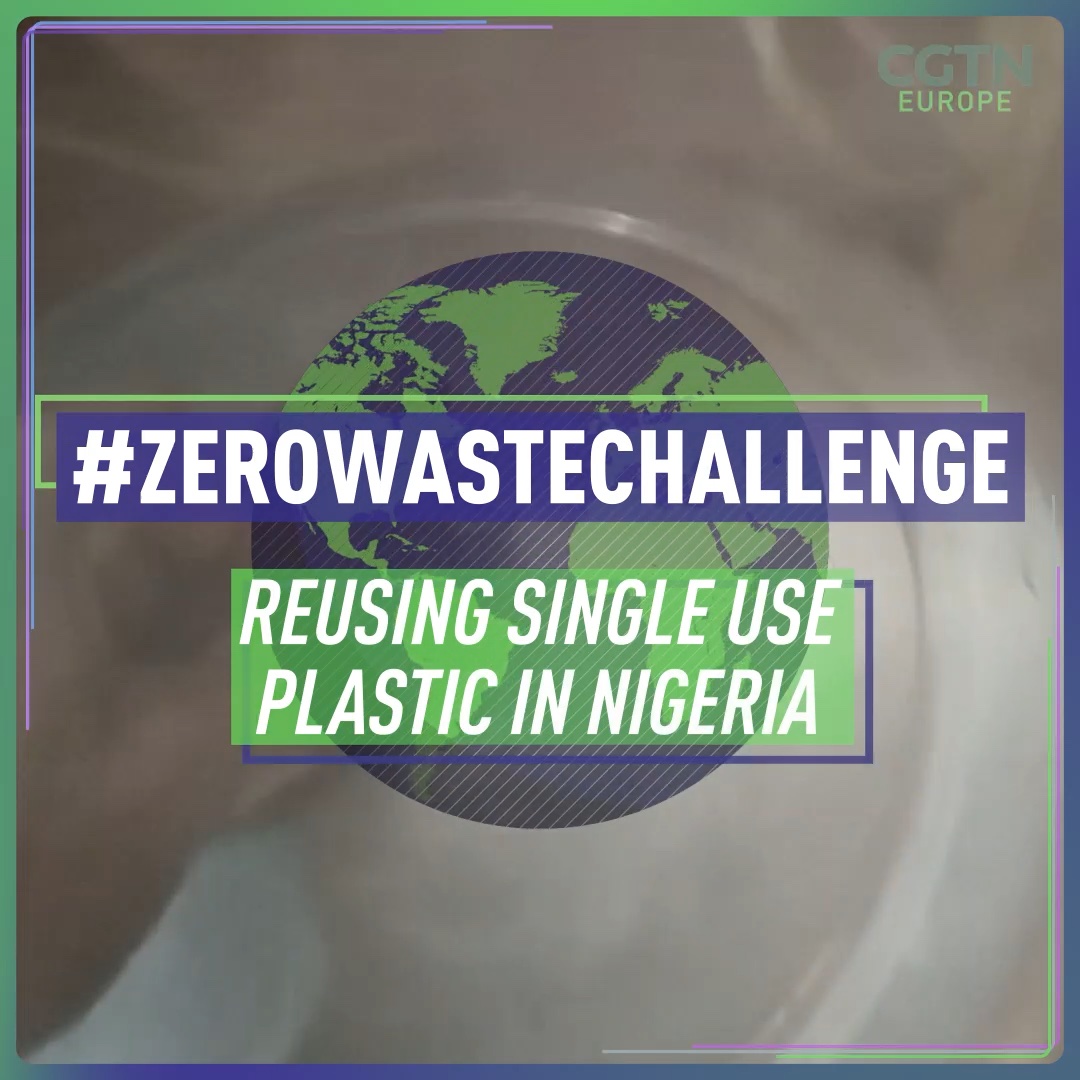In this section of CGTN's #ZeroWasteChallenge, we asked our four volunteers from four continents to tell us what happens outside their homes – how their work and transport affects their waste output…
02:40

For Emmanuel Ojirhevwe, our #ZeroWasteChallenge volunteer in Nigeria, reducing waste isn't just a pleasant notion – it's an income stream.
He and his wife have set up a cottage industry selling zobo, a traditional drink, in reused plastic bottles that would otherwise be thrown away. And there are a lot of those in Nigeria, where an estimated 300,000 tons of bottles are consumed per year, with 80 percent of them never being recycled. Emmanuel can't save them all, but there's certainly enough to keep him in business, as he shows in his report.
The couple wash the bottles and fill them with zobo, a Hausa word for the drink made from the petals of the Hibiscus sabdariffa plant, known variously around the world as roselle, sorrel and luo shen hua.

Motorbikes are available for private hire in Nigeria. /Emmanuel Ojirhevwe/CGTN
Motorbikes are available for private hire in Nigeria. /Emmanuel Ojirhevwe/CGTN
Cleaning then cooking the leaves, they add sweetener and pour the mixture into bottles, which they chill in the refrigerator before taking them around the shops, "where customers recognize us and buy from us in large quantities," smiles Emmanuel.
But how do Nigerians get around? "We have terrible traffic problems in Lagos," says Emmanuel, who takes the bus to work. Many Nigerians use motorbikes, which can be hired privately on a short-term basis from vendors – "we go to them, pay them money and then we handle the bike, it's not actually ours."
However, Emmanuel tries not to because "the road is not smooth or safe. I'll use one to go to market, to visit my extended family, or to go to church on Sunday," but if he has a longer journey to make – such as upstate to see his mother – "we'll take the bus."
This story is part of CGTN's #ZeroWasteChallenge as four people on four continents reveal how sustainable their country's culture is.

